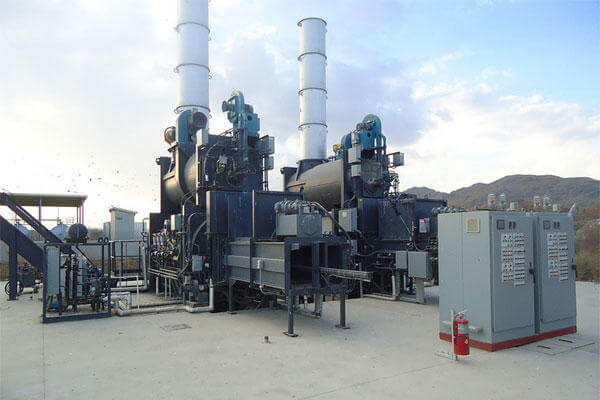The U.S. military built a pair of multi-million dollar incinerators in Afghanistan it has chosen not to use and instead continues to burn trash in open air burn pits that puts troops' health at risk, the Special Inspector General for Afghanistan Reconstruction found.
Forward Operating Base Salerno officials told inspectors they have no plans to follow recommendations that base trash be hauled off by contractors, and instead plan to keep using the burn-pits up until the base's scheduled shut down in December.
Officials there are "requesting a waiver that would allow FOB Salerno to continue using the burn pits to dispose of solid waste and garbage," inspectors said. FOB Solerno is located in eastern Afghanistan near the city of Khost.
Burn pits, used to dispose of metal, paints, solvents, and medical waste, have shown to be a health problem among veterans. Congress has ordered the Department of Veterans Affairs to establish a registry that will be used to try to determine if there is a link between the burn pits and long-term health problems.
Researchers will use the database to monitor health trends in participants, and the VA will alert them to major problems detected. Veterans and their advocates have said the registry and research findings will make it easier later on to file for disability compensation.
The special inspectors' report found that construction of the incinerators was wasteful.
"FOB Salerno wasted $5.4 million constructing incinerators and supporting facilities that it will never use," the report concluded. The Army accepted the incinerators before they were finished and then failed to contract for maintenance – not even aware until after taking them over that contracting for their operation and maintenance would cost $1 million a year," inspectors wrote.
As a result, the incinerators fell into disrepair. Photos included with the report showed them covered with bird droppings and with stagnant pools of water beneath. Inspectors warned that the pools are a possible breeding ground for malaria-infected mosquitoes.
The Army awarded a Turkish company a contract to build the incinerators in July 2010. The plan was to use the facility round-the-clock at the base and end use of the burn pits that have become a source of controversy as veterans report health problems from exposure to the burned waste.
As it turned out, however, threat conditions at Salerno meant the incinerator could only be used 12 hours a day, not 24. Even if the incinerators were operational, the base would still have to use additional methods to dispose of its daily solid waste, inspectors said.
In addition to recommending that the base begin having its trash and waste hauled off rather than burned, the inspectors also said the officials must ensure the water pools are cleaned out and a plan be drawn up for disposing of the incinerators.
The inspectors wrote that the commander of U.S. Forces in Afghanistan, Gen. Joseph Dunford Jr., acknowledged the problem with the water and also agreed to come up with a plan for the incinerators.
Base officials' decision to keep burning waste in the pits is a turnaround from earlier statements to the inspectors.
In January, Salerno officials said the burn puts would be out of commission by July, at which time the base would use contract help to get rid of trash.
But with the base slated to close by December that would mean entering into a contract that would be in use for only a matter of months.
"In commenting on a draft of this report, U.S. Forces–Afghanistan stated that it is not pursuing contracting locally for trash removal and, in fact, is requesting a waiver that would allow FOB Salerno to continue using the burn pits to dispose of solid waste and garbage."
- Associated Press contributed to this report.





























